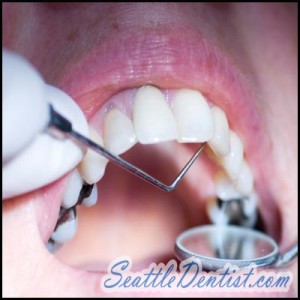-
July 22nd, 2010articles
For someone who brushes regularly, tooth decay comes as little to no worry. But for the people busy doing things they love and forget about brushing on time, sometimes to the extent of not brushing for days, the issue of tooth decay poses some serious dental health risks.
Tooth decay or “dental caries” is the process of bacteria infiltrating the inner portions of the tooth, often leading to an unsightly, gaping hole in the area of bacterial infiltration. And tooth decay is no small issue – several deaths have been caused by tooth decay of a single tooth. An unattended tooth decay issue has led to a Deamont resident’s death in March of 2007. This, along with a few other cases of unsightly tooth decay maladies has led the US government to pass a bill called the “Children’s Dental Health Improvement Act of 2007”, which aims to provide free dental services for children falling in the poverty line.

Tooth decay can be prevented by the regular brushing and flossing of teeth, aided by a dentist-recommended toothbrush and fluoride toothpaste. Dentists, as always, recommend a healthy food regimen to prevent tooth decay from happening. But 90% of the time, people violate the rules and dig into the flavorful yet dentally compromising foods that are either highly acidic or high in sucrose content (fructose, glucose and sucrose).
Though the recalcification (or the “regeneraton”) of the tooth enamel is highly probable in people who brush their teeth at least thrice a week, the effects of tooth decay still vary in our bodily composition. Adults have a highly lesser chance to recover from tooth decay than children. And since people with a sweet tooth often tend to carry that habit until they grow older, chances are, those people are more prone to acute tooth decay conditions.
To prevent tooth decay and other related dental health problems, one must always follow these simple steps and advice (ranked in importance):
1. Brush and floss teeth after meals and before going to sleep. People with dental appliances like braces and dentures may require more thorough brushing.
2. Always bring a toothbrush and toothpaste if you’re going to stay out of town for more than a day. Research shows that people who go out of town eat more both in quantity and variety as compared to their daily eating habits.
3. Get your teeth cleaned at least twice a year. Professional cleaning often takes a few minutes and the costs are not that high. Oftentimes, your dental coverage plan will take care of 80-100% of the bill. We also recommend getting dental health insurance.
4. Get dental fillings if you haven’t had them yet. Dental fillings are one of the most important procedures that should be mandatorily done on our teeth.
5. Again, avoid foods with drastically high amounts of sugar and high acidity levels. These foods, will detriment your dental health in the long run. Consider toning down on preservative-based foods and practice eating natural and organic foods.
6. In some cases, pediatric dentists may prescribe chewable sodium fluoride tablets to children and adolescents. This ensures that they get sufficient amounts of fluoride for their teeth. These tablets are sold in bottles and usually cost more than the regular vitamin supplements.
For severe cases of tooth decay, signaled by acute pain caused by a gaping hole (also called a “cavity”), bad breath and a bitter taste when eating food, one should definitely go see a dentist. Unattended cases of tooth decay first turn into complications like thrombosis and various heart conditions.

